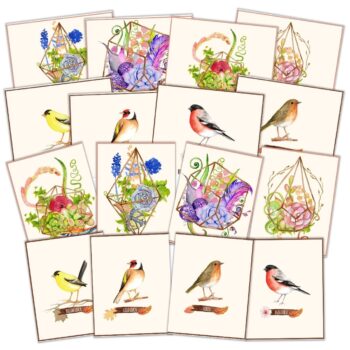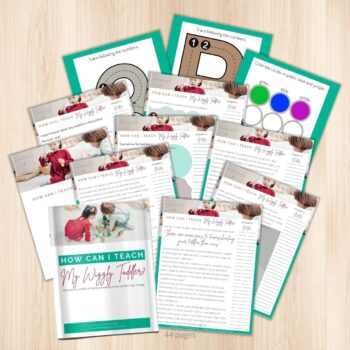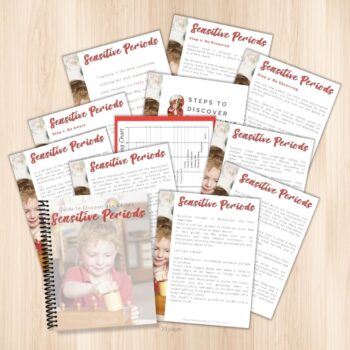Doing Montessori from birth is not as hard as you may think. It actually gives you and your baby the opportunity to ease into it and make it a lifestyle for both of you as you grow together in this wonderful method. Fostering independence from birth is possible and before you think it means letting your baby “tough it out,” read on to find out what that really means.
The Montessori philosophy, founded by Dr. Maria Montessori, revolutionized early childhood education by emphasizing independence, freedom within limits, and respect for a child’s natural psychological development. It truly is a beautiful thing to observe and nurture in children.
While many associate Montessori with preschool and elementary education, the principles can be applied right from birth. This blog post aims to guide new parents, Montessori enthusiasts, and teachers on how to foster independence in babies from the very beginning.
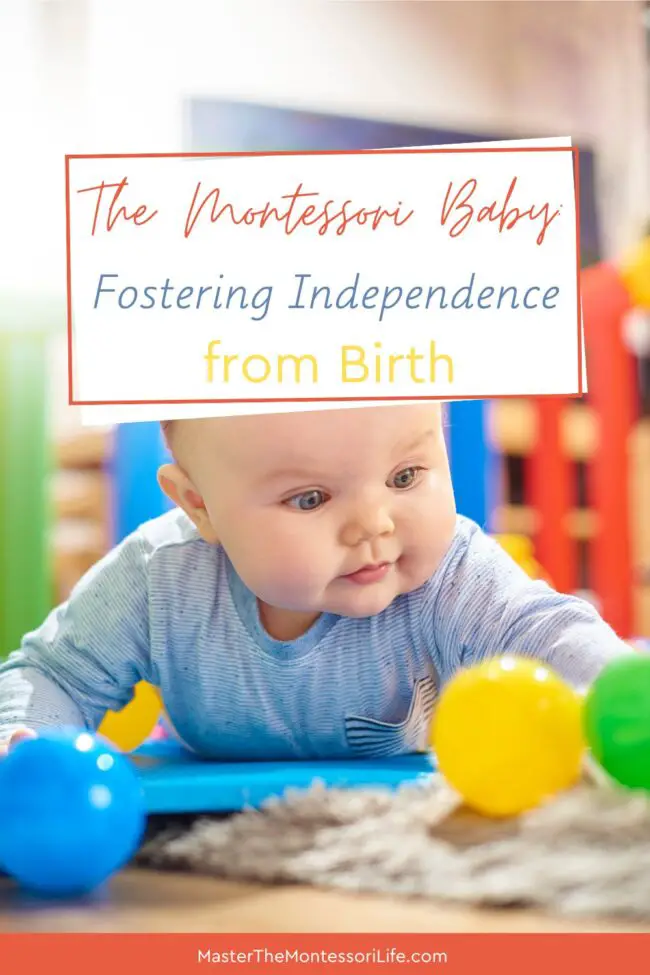
The Importance of Independence in Babies
Independence is an essential aspect of a child’s development, as it empowers them to explore, learn and develop their unique skills and abilities. In the Montessori approach, independence is not just about self-care tasks such as dressing or feeding oneself.
It also includes decision-making, problem-solving, and critical thinking skills. By encouraging independence from an early age, children gain confidence in their abilities and develop a positive self-image. This foundation is crucial for future academic and personal success.
Creating a Prepared Environment
One of the core tenets of the Montessori philosophy is the prepared environment—a space designed to encourage children to explore and learn independently.
1. Design a Safe and Accessible Space
Ensure that your baby’s environment is safe for exploration. Use low shelves and place toys and books within their reach. A floor bed instead of a crib allows babies to freely move around and explore their surroundings at their own pace. This freedom helps them develop a sense of independence early on.
2. Simplify the Space
A cluttered environment can be overwhelming for a baby. Choose a few high-quality, developmentally appropriate toys and rotate them regularly. This approach promotes focus and engagement, enabling babies to make independent choices about what they want to play with.
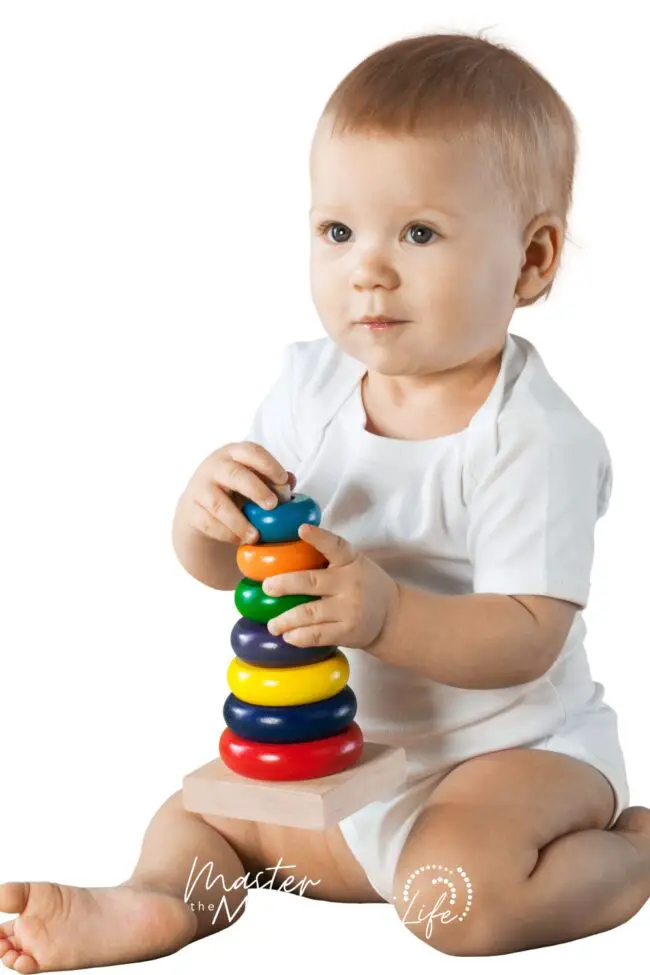
Encouraging Self-Directed Activity
Montessori emphasizes the importance of allowing children to choose their activities and engage in uninterrupted play.
3. Follow the Child’s Lead
Observe your baby and follow their interests. If they show curiosity about a particular object or activity, allow them the time to explore it. This fosters a sense of autonomy and encourages cognitive development. Provide materials that are easy to grasp and manipulate, such as soft blocks or fabric balls.
4. Encourage Hands-On Learning
Babies learn through their senses, and providing opportunities for hands-on exploration is crucial. Sensory toys, like textured fabrics or wooden rings, allow babies to experience different textures and shapes. These experiences build fine motor skills and promote independent learning.
Promoting Independence in Daily Routines
Daily routines provide numerous opportunities for fostering independence, even in very young children.
5. Involve Babies in Caregiving Activities
Even from a young age, involve babies in their own caregiving routines. For example, during diaper changes, explain what you are doing and allow them to participate by holding a wipe or diaper. This participation helps build a sense of responsibility and control over their own bodies.
6. Encourage Self-Feeding
Introduce self-feeding as soon as your baby shows signs of readiness. Offer soft, easy-to-grasp foods and allow them to explore the textures and tastes independently. Using child-sized utensils and plates can make the process more manageable for them.
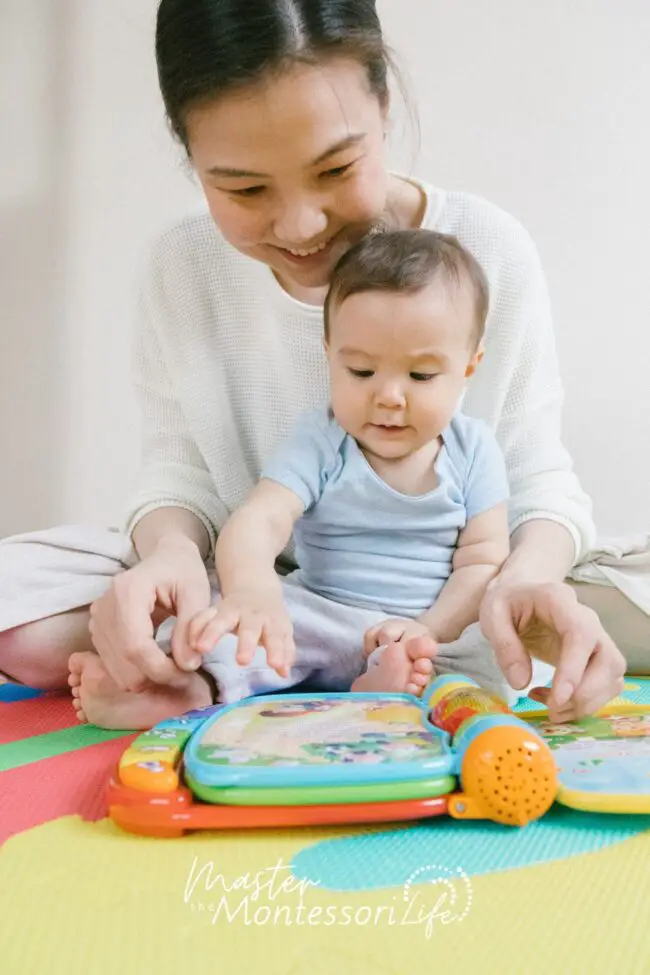
Building a Foundation of Respect and Trust
Respecting a child’s individuality and trusting their ability to learn and grow independently are fundamental principles of Montessori education.
7. Respect the Baby’s Capabilities
Trust that your baby is capable of learning and doing things independently. Avoid rushing to help them unless it is absolutely necessary. Instead, offer encouragement and support, allowing them to solve problems and overcome challenges on their own.
8. Communicate with Respect
Speak to your baby with respect, using clear and simple language. Explain what you are doing and why, even if they are too young to fully understand. This practice builds trust and helps babies feel valued and respected as individuals.
Conclusion
Fostering independence from birth is not only possible but also beneficial for a child’s development. By creating a prepared environment, encouraging self-directed activity, promoting independence in daily routines, and building a foundation of respect and trust, parents and educators can help babies develop the confidence and skills they need to thrive.
Applying Montessori principles from birth sets the stage for a lifetime of learning and independence. For new parents, Montessori enthusiasts, and teachers, embracing these practices can be a rewarding journey that nurtures the growth of capable, confident, and independent children.
By integrating these strategies into your daily routines, you can help your baby become a self-reliant and curious learner right from the start. Embrace the Montessori way and witness the amazing transformations in your child’s development.
You might also enjoy these relevant topics:
- Montessori from Birth: Why Start from Day One
- 10 Essential Montessori Toys for Your Baby’s First Year
- The First Year of Life: Developmental Stages and Key Milestones
- How to Start doing Montessori with your Baby
- A Comprehensive Montessori Guide for New Parents
- Strategies for Fostering Independence in Babies
Montessori Wooden Baby Toy Set – 6 Pieces of Rattles, Push Car and Newborn Toys for PgUp Baby Play Gym Wooden Baby Gym with 7 Toys, Foldable Wooden Play Gym Frame Hanging
PgUp Baby Play Gym Wooden Baby Gym with 7 Toys, Foldable Wooden Play Gym Frame Hanging hahaland High Contrast Baby Flashcards – Black and White Infant Baby Cards 0-6 Months Tummy Time
hahaland High Contrast Baby Flashcards – Black and White Infant Baby Cards 0-6 Months Tummy Time MORITECK Spinning Drum, Montessori Toys for Babies 6-12 Months, Infant Kids Developmental Wooden Toy for Boy
MORITECK Spinning Drum, Montessori Toys for Babies 6-12 Months, Infant Kids Developmental Wooden Toy for Boy Montessori Play Kit for 0-6 Month Baby Tummy Time Interactive Toys Baby Brain Development Toys Rattle
Montessori Play Kit for 0-6 Month Baby Tummy Time Interactive Toys Baby Brain Development Toys Rattle Montessori Babies
Montessori Babies
- Hands-On Fun: 3 Montessori Practical Life Activities for Fall
 These simple Montessori Practical Life activities for Fall are easy to do anytime you have the materials ready.
These simple Montessori Practical Life activities for Fall are easy to do anytime you have the materials ready. - Embracing Autumn: A Montessori Guide to Fall Fun
 Spread the love The arrival of autumn brings a special kind of magic. The air turns crisp and leaves paint…
Spread the love The arrival of autumn brings a special kind of magic. The air turns crisp and leaves paint… - Montessori Toddler Essentials
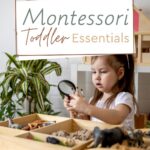 The Montessori method offers a pathway with a series of Montessori toddler essentials that you will find helpful.
The Montessori method offers a pathway with a series of Montessori toddler essentials that you will find helpful. - Motor Skills for Hands the Montessori Way
 The Montessori Method puts a special focus on developing motor skills for hands, recognizing how essential they are for independence, confidence, and curiosity.
The Montessori Method puts a special focus on developing motor skills for hands, recognizing how essential they are for independence, confidence, and curiosity. - Simplify Toy Rotation with Montessori Checklist
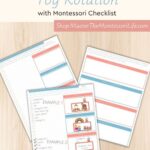 Make Toy Rotation Simple and Fun with the Montessori Toy Rotation Checklist Labels and Chart. Organizing your child’s play area shouldn’t be stressful! That’s why the Montessori Toy Rotation Checklist, Labels & Chart is every parent’s new best friend when it comes to keeping toys fresh and shelves inviting.
Make Toy Rotation Simple and Fun with the Montessori Toy Rotation Checklist Labels and Chart. Organizing your child’s play area shouldn’t be stressful! That’s why the Montessori Toy Rotation Checklist, Labels & Chart is every parent’s new best friend when it comes to keeping toys fresh and shelves inviting. - Sight Words for Toddlers in Montessori Language Arts
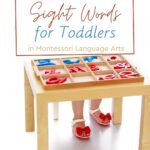 When you look into Montessori Language Arts, you will find a unique and engaging approach that helps toddlers master these important words.
When you look into Montessori Language Arts, you will find a unique and engaging approach that helps toddlers master these important words.



